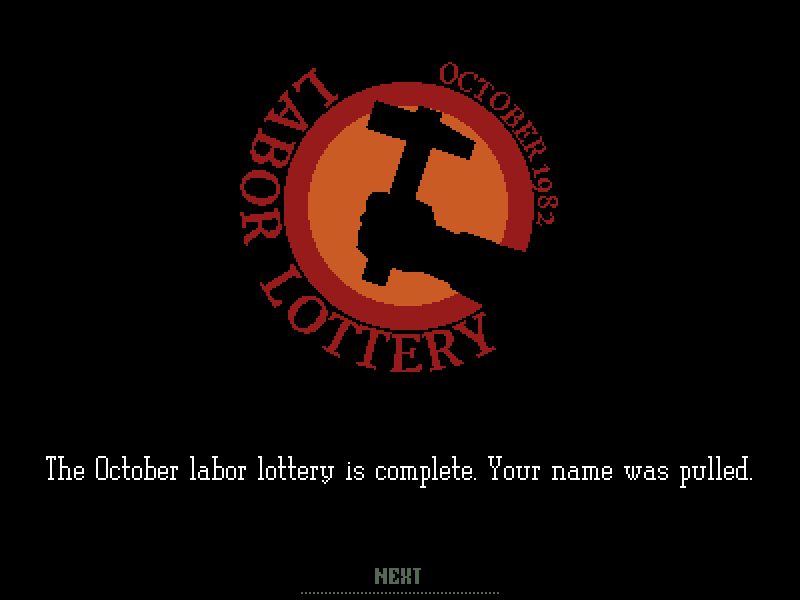

Every day, the player receive new memos from the administration about what to look for on passports and work cards. Many people that come to the player’s desk lack the proper documents. Some of them are on the run from violent ex-lovers, or have family on the other side of the border.

If the player decides to let them pass, their pay may be docked, and there is a family at home that needs food and medical supplies. Others potential migrants have made convincing forgeries, and if the player doesn't notice, a terrorist could be allowed to cross the border, where they will then set off a bomb, killing dozens in the vicinity. Papers, Please incorporates many aspects of a forum play. The game allows the player to make choices, and responds to them, much like how actors will push back against an audience member’s intervention. The player has the option to do what they feel is right in morally ambiguous situations but, like in a forum play, there are consequences. The game, though set in a fictional county, comes from the developer’s real life experience with immigration, just as TO scenes all start with a personal story of an actor. The experience of playing Papers, Please feels very similar to coming on stage at the end of a play, assuming the role of the protagonist, and trying to change the scene, except in Papers the player is the protagonist for the entire play as opposed to just one scene.Īnother game worth mentioning (and worth playing) is Cart Life. In Cart Life, the player takes on the role of one of three playable protagonists Melanie, Andrus, and Vinny. Melanie has just gone through a divorce and wants to keep custody of her daughter. Andrus just moved to the states and needs to find a place to live. Each character owns and operates a street cart of some kind, and the gameplay is centered around running said cart.


 0 kommentar(er)
0 kommentar(er)
